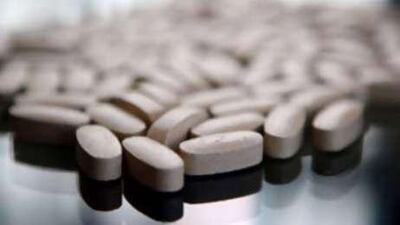ABU DHABI // Prices of certain medicines will rise by more than 20 per cent by the end of this year because of currency fluctuations, the Ministry of Health announced yesterday. As part of its strategy to increase the role of the private sector and boost the local pharmaceutical economy, there will be a rise of 21.4 per cent for medicines for non-chronic conditions, and 5.85 per cent for those used to treat chronic conditions and which come from Europe. This will include only those which priced in euros.
Out of the 3,665 medicines registered to treat chronic illnesses such as cancer, diabetes and epilepsy, the price change will affect 530. Of the 3,267 non-chronic medicines, 599 will be affected. Since 2005 the ministry has kept the exchange rate between the dirham and euro in pharmaceutical transactions fixed at 4.3 dirhams per euro. The exchange rate currently stands at about 5.8 dirhams per euro.
Under a ministerial decree issued by Humaid al Qutami, the Health Minister, the revised exchange rate will take effect from Oct 15. Eliminating this favourable exchange rate at the first step in the supply chain will increase costs by about 32 per cent for medicines coming from Europe. But the ministry plans numerous measures, including mandatory cuts in the profit margins of pharmacies and middlemen, to ease the impact on consumers.
"We had to do something to look after the patient and not let the companies lose out too much," said Dr Amin al Amiri, the chief executive for medical practice and licensing at the ministry. "But we needed to take into account the changing exchange rates for the euro. "We have made some adjustments and come up with a scheme which suits everyone best." The ministry is mandating tighter profit margins throughout the supply chain to keep prices low. For the 530 medicines used to treat chronic illnesses they have ruled that the profit made by the pharmaceutical representative in the UAE must be cut by five percentage points. The profit the pharmacy can make must be cut by six percentage points.
For non-chronic medicines imported from Europe, prices will rise by significantly more when the decree takes effect because the ministry is not mandating lower profit margins. Dr Fatima al Braiki, the deputy director of medical practice and licensing, said: "We do not want to increase the prices of the chronic medicines by too much because they are medicines the patient will need to take for the rest of their lives."
@Email:munderwood@thenational.ae

